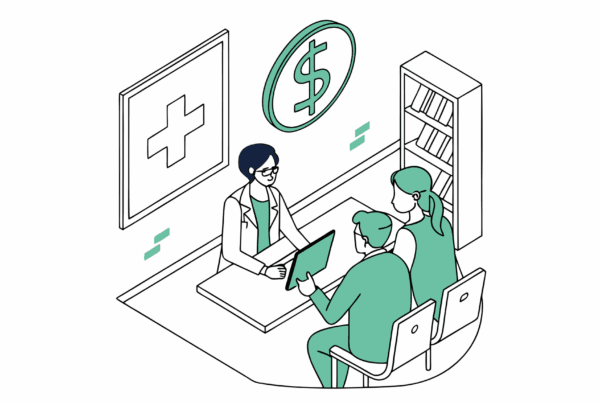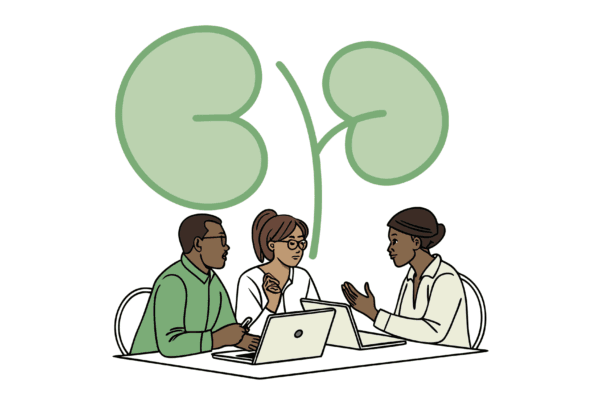Selling your Las Vegas bariatric and obesity practice is one of the most important financial decisions you will ever make. The market is currently active, with significant interest from buyers. But a successful sale depends on strategic preparation and expert timing. This guide provides a clear overview of the Las Vegas market, key valuation drivers, and the steps involved, helping you understand your options and navigate the path to a successful transition.
Las Vegas Market Overview
The Las Vegas market presents a unique opportunity for bariatric practice owners considering a sale. The demand for services is robust, supported by both local demographics and national health trends. If you’re thinking about your exit, it’s helpful to understand the landscape.
Here are a few key points about the market:
- Strong Local Demand: Las Vegas is a significant hub for bariatric procedures, with over 1,200 surgeries performed annually. This indicates a large and established patient base for potential buyers to tap into.
- National Market Growth: The U.S. bariatric market is projected to grow at over 5% annually, reaching $1.15 billion by 2030. This strong tailwind increases buyer confidence and practice valuations.
- Expanding Patient Base: Trends show an increase in adolescent bariatric surgeries and an expansion of eligibility criteria. This points to future growth opportunities that a new owner can build upon.
Key Considerations for Your Practice
Beyond the market data, a successful sale begins with introspection and preparation. It’s about more than just the final number. It’s a transition that affects your patients, your staff, and your legacy. Before you even think about listing your practice, you should be clear on your personal goals. Are you looking for a clean break, or do you want to stay on for a few years? What is most important for you in a potential buyer? Getting your financial records, compliance documents, and operational procedures in order is also a critical first step. This preparation ensures you can present your practice in the best possible light and move smoothly through a buyer’s due diligence process.
Understanding Market Activity
The bariatric surgery field is attracting significant interest from a range of buyers, from larger healthcare systems to private equity groups looking for strong platform practices. With procedures increasing by over 6% nationally in a single year, buyers see a clear path to growth.
Who Are the Buyers?
In Las Vegas, potential buyers often include individual physicians looking to expand, regional hospital systems aiming to build out their service lines, and sophisticated investment groups. Each type of buyer has different goals and will value your practice differently. The key is to run a process that identifies the right partner for your specific financial and personal objectives, not just the first offer that comes along.
Why Preparation is Key, Even if You’re Not Selling Today
Many owners tell us, “I’m not ready to sell for another 2-3 years.” That is exactly the right time to start planning. Buyers pay for proven performance, not just potential. The work you do in the years leading up to a sale to streamline operations, clean up financials, and document growth is what drives premium valuations. Starting now allows you to sell on your terms, not a buyer’s.
The Typical Sale Process
Selling your practice is a structured process with several distinct phases. It’s not as simple as putting up a “for sale” sign. It starts with a comprehensive valuation to understand what your practice is truly worth. From there, we create a confidential marketing package that highlights the strengths and growth opportunities of your practice. This is shared with a curated list of vetted, qualified buyers. Once interest is generated, you will review offers and select a preferred partner. The next stage, due diligence, is where the buyer verifies all financial and operational details. This is often the most intensive part of the process. Proper preparation is what ensures this phase goes smoothly, leading to a successful closing.
How Your Practice is Valued
Many practice owners mistakenly believe their practice’s value is based on a simple multiple of revenue. In reality, sophisticated buyers value your practice based on its cash flow, or Adjusted EBITDA. This figure represents your true profitability after adding back personal expenses and normalizing owner compensation. We often find practices are worth significantly more than their owners think once we’ve done this analysis.
Here is a simplified look at how value is determined:
| Component | Example Amount | Description |
|---|---|---|
| Reported Profit | $500,000 | The net income shown on your P&L. |
| Owner Add-Backs | + $200,000 | Adjusting for above-market salary and personal perks. |
| Adjusted EBITDA | = $700,000 | The true cash flow a new owner could expect. |
| Valuation Multiple | x 6.5 | Based on specialty, size, and growth factors. |
| Practice Value | = $4,550,000 | The enterprise value before debt and fees. |
This value is then multiplied by a factor that reflects your practice’s specific strengths, such as your referral network, staff stability, and growth potential. It is a story, not just a number.
Post-Sale Considerations
The day you sign the closing documents is not the end of the journey. A successful transition requires careful planning for what comes next. How will your dedicated staff be treated? How will your patients be informed to ensure continuity of care? What will your role be, if any? Many owners fear losing control, but control doesn’t have to be a simple yes or no. The right deal can be structured to protect what matters most to you, whether that’s clinical autonomy, financial upside through retained equity, or a clear path to retirement. Thinking through these issues beforehand allows us to negotiate terms that safeguard your legacy and ensure a smooth handover for everyone involved.
Frequently Asked Questions
What is the current demand like for bariatric and obesity practices in Las Vegas, NV?
Las Vegas has a strong local demand for bariatric procedures with over 1,200 surgeries performed annually. This indicates an established patient base and a robust market supported by both local demographics and national health trends.
Who are the typical buyers for bariatric practices in the Las Vegas market?
Typical buyers include individual physicians looking to expand, regional hospital systems aiming to grow their service lines, and private equity or investment groups interested in strong platform practices. Each buyer type values practices differently based on their goals.
How is a bariatric practice in Las Vegas typically valued during a sale?
Valuation is based on adjusted EBITDA (cash flow) rather than just revenue multiples. This includes reported profit plus owner add-backs for personal perks and above-market salary. The adjusted EBITDA is then multiplied by a factor (like 6.5) reflecting specialty, size, and growth potential, often yielding a value higher than owners initially estimate.
Why is preparation important when selling a bariatric and obesity practice?
Preparation is key to driving premium valuations and includes cleaning financial records, organizing compliance documents, and documenting growth. Starting preparation 2-3 years before selling allows you to present a well-run practice to buyers, not just potential, ensuring a smoother due diligence and higher sale price.
What should practice owners consider post-sale when transitioning out of their bariatric practice?
Owners should plan how their staff will be treated, how patients will be informed to ensure continuity of care, and define their future role if any. Structured deals can protect clinical autonomy, provide financial upside through retained equity, or offer a retirement path, helping safeguard legacy and ensure a smooth transition.



